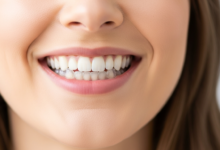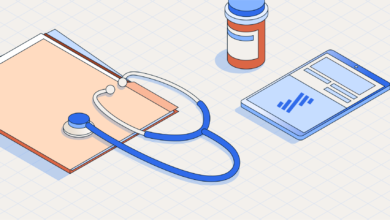
How to Prevent Cavities: 6 Great Tips
Did you know that around ninety percent of all adults have had at least one cavity?
If you’ve had cavities in the past, you are not alone. But this does not mean that it’s necessary to worry about getting them in the future.
There are several effective strategies that you can embrace in order to keep yourself from getting cavities. We’ve created a guide that explains how to prevent cavities. Keep reading if you want to find out more.
Table of Contents
1. Remember to Brush Your Teeth
One of the most effective cavity prevention techniques is to brush your teeth at least several times per day. Make sure to use toothpaste that contains fluoride.
Some people choose to brush their teeth with regular toothbrushes, and others use electric toothbrushes.
Regardless of what type of toothbrush you choose to use, make sure that you tend to all sides of your teeth, including the front, back, and top.
Also, make sure that you brush the spaces between your teeth. You can do this by making a sweeping motion in order to remove food particles from your gums.
This is one of the best things you can do for cavity prevention because you will remove plaque from your teeth.
Since it only takes a few hours for plaque to build up again, you’ll need to remember to brush your teeth at least twice per day.
If it is hard for you to remember to brush your teeth on a regular basis, consider brushing your teeth right after you wake up and just before you go to bed. After doing this every day for several weeks, it will become a habit.
2. Floss Between Your Teeth Every Day
Even though most people understand the importance of flossing at least once per day, not everybody knows how to do it the right way.
Start by breaking off at least twelve inches of floss. Wrap it around one of each of your hand’s fingers. You’ll then need to hold the floss between your thumbs and your index fingers.
Move the floss between your teeth while trying to make a gentle rubbing motion. Make sure that you don’t snap the floss when you are moving it along your gums.
Take time to curve the floss into a C shape around both sides of each of your teeth.
Lastly, don’t forget to floss the back side of your last tooth. Once you have finished flossing, you can throw the used floss away.
3. Embrace a Healthy Diet
There are lots of foods that you can introduce to your diet in order to improve your dental health.
It is also important to eat fewer processed foods that have lots of sugar. This is because people who eat lots of starchy and sugary foods tend to get more cavities.
Focus on consuming plenty of fresh fruits and vegetables. Not only are these foods nutritious. They also have teeth cleaning benefits.
You should also start eating more foods that are high in calcium. This includes milk, yogurt, cheese, soy, salmon, and nuts.
4. Make Regular Visits to Your Dentist and Dental Hygienist
People often have cavities that they are not aware of. Your family dentist can detect them by performing dental X-rays.
Your family dentist will also perform a check-up to make sure that your teeth and gums are healthy.
Your dental hygienist will perform cleanings. This will prevent cavities and will improve your dental hygiene. Your dental hygienist will also be able to offer you tips on how to improve your dental health.
5. Replace or Repair Worn Sealants
Dentists often recommend that their patients have sealants applied to their teeth, especially to the tops of their molars and premolars.
If your dentist correctly applies a sealant to your teeth, it can last for ten years or more before it will need to be replaced.
But it is possible to prematurely damage dental sealants if you bite your nails, grind your teeth at night, or don’t wear a mouthguard when you are playing contact sports.
If one or more of your sealants needs to be replaced or repaired, make sure to contact your dentist and let them know.
It is quick and painless to fix damaged sealants. The procedure does not require drilling or anesthesia.
6. Immediately Contact Your Dentist if You Have a Dental Emergency
Since there are many different kinds of toothaches, it is important to understand what the signs are that you need emergency dental care.
Some toothaches are mild, and others are extremely painful. If you have a toothache, make sure to call your dentist to let them know what is going on.
You should seek emergency dental care if you have a loose tooth, especially if you’ve recently been in an accident.
It is also important to visit your dentist right away if your gums are bleeding or if they are hurting you. Your dentist can quickly make an assessment in order to let you know what the problem is.
Lastly, don’t hesitate to contact your dentist if your mouth tastes like metal. This may be a sign that one of your fillings is loose or cracked.
Learn How to Prevent Cavities
It is important that you know how to prevent cavities. Make sure to brush and floss your teeth on a regular basis. You should also schedule a dental checkup at least twice per year.
If you want to find out more about improving your dental health, don’t forget to check out the Health section of our website.








